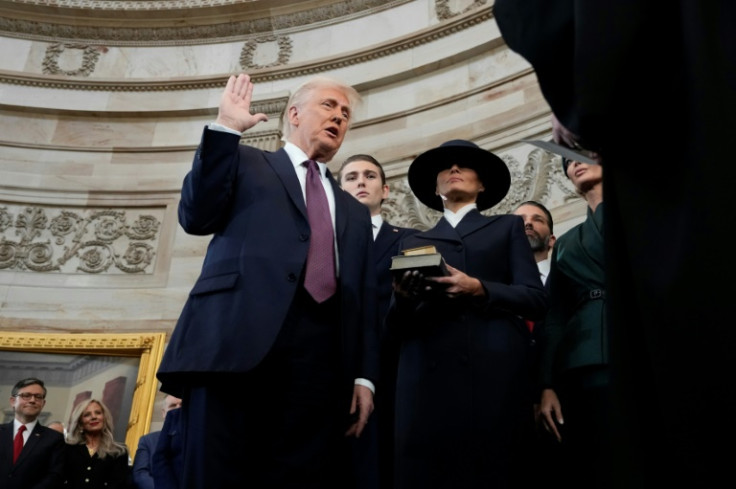
President Donald Trump has issued sweeping executive orders that ends telework for federal employees and reclassifies thousands of federal employees as political hires, making it easier to remove workers deemed insufficiently loyal to his administration.
The executive order brings back "Schedule F," a policy from Trump's first presidency that allows many federal employees to be reclassified as political appointees.
Under the policy, federal employees will be reclassified as political appointees, stripping them of civil service protections. Without these legal safeguards, employees can be dismissed more easily for reasons related to political loyalty. If upheld by the courts, this change could lead to the removal of mid-level officials previously protected from political purges, reported Reuters.
Trump's latest order overturns a 2021 decision by President Joe Biden, who had reversed Trump's original reclassification of federal workers. Biden's order reinstated civil service protections for these employees, preventing them from being removed based on political considerations.
End To Telework For Federal Employees
In another significant move, Trump has ordered all federal departments and agencies to end remote work arrangements, as per the Executive Order.
"Heads of all departments and agencies in the executive branch of Government shall, as soon as practicable, take all necessary steps to terminate remote work arrangements and require employees to return to work in-person at their respective duty stations on a full-time basis, provided that the department and agency heads shall make exemptions they deem necessary," the executive memo states.
Employees will now be required to return to in-person work, except in cases where department heads make specific exemptions, NPR reported.
Federal workers will be required to return to the office five days a week, forcing many white-collar government employees to give up remote work arrangements—a trend that had gained momentum during the early days of the COVID-19 pandemic.
However, despite claims from Trump and other Republicans that remote work is widespread among federal employees, government data shows otherwise.
According to a report submitted by the U.S. Office of Personnel Management (OPM) to the Congress, last August, 54% of the 2.3 million civilian federal workers are already working in person full-time. Only about 10% or 228,000 of federal employees work remotely full-time, while the rest follow a hybrid model, working part-time in the office.
Excluding the fully-remote workers, telework-eligible federal employees spent more than 60% of their work hours in person, although this figure varies significantly across different agencies.
Freeze On Federal Hiring
Trump has also implemented a temporary hiring freeze across most federal agencies, with some key exceptions, including the military and agencies involved in immigration enforcement.
The Office of Management and Budget (OMB) and a new advisory body, the Department of Government Efficiency (DOGE), have been tasked with reducing the federal workforce through attrition and efficiency improvements. The two bodies are expected to deliver a plan for workforce reduction within 90 days.
Tesla CEO Elon Musk, who chairs DOGE, recently predicted that ending "the COVID-era privilege" of telework would lead to "a wave of voluntary resignations," which he said would be welcomed.
Criticism From Unions And Experts
The new executive orders have faced strong criticism from unions representing federal workers. The American Federation of Government Employees (AFGE), which represents more than 800,000 federal and D.C. employees, described the moves as a "backward action."
"Restricting the use of hybrid work arrangements will make it harder for federal agencies to compete for top talent," AFGE stated.
AFGE President Everett Kelley argued that remote and hybrid work options are essential for recruiting and retaining skilled workers in the federal government.
Nicholas Bloom, economics professor at Stanford University and an expert on labor and management issues, warned that Trump's push to force federal employees back to the office could lead to increased resignations and legal challenges. He suggested that this could undermine the quality of government services, particularly in crucial areas like safety and social security.
"I think there's going to be a lot of problems with government services falling apart," Bloom said. "God help anyone who's interacting with the federal government."







